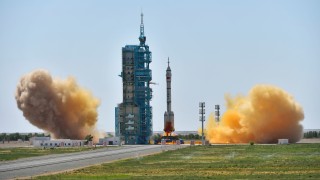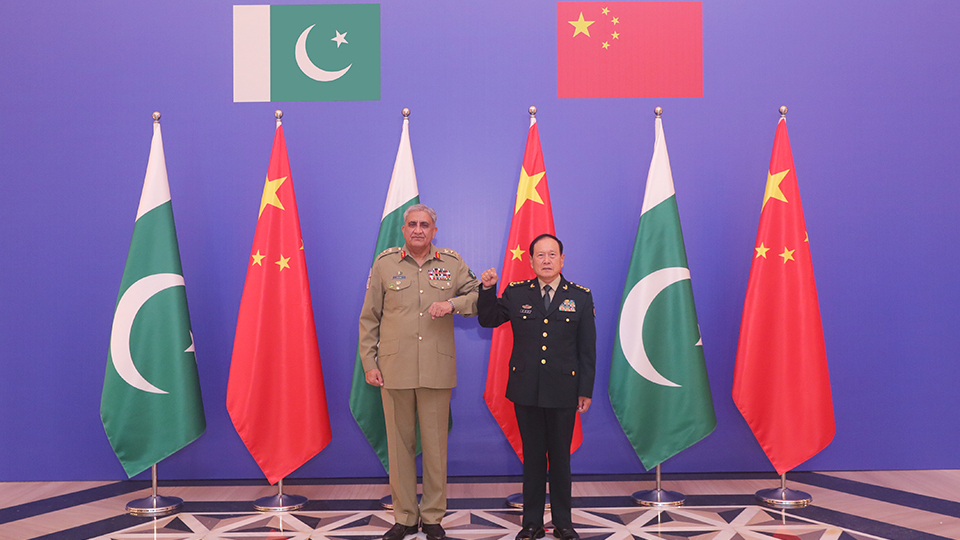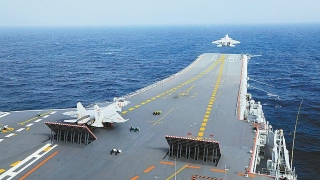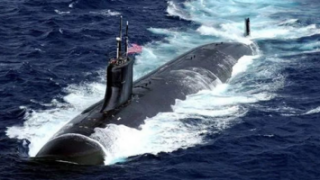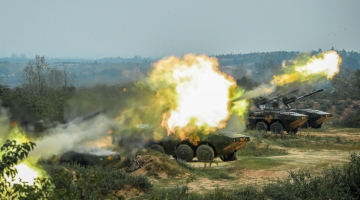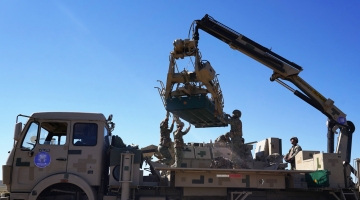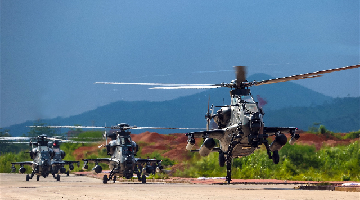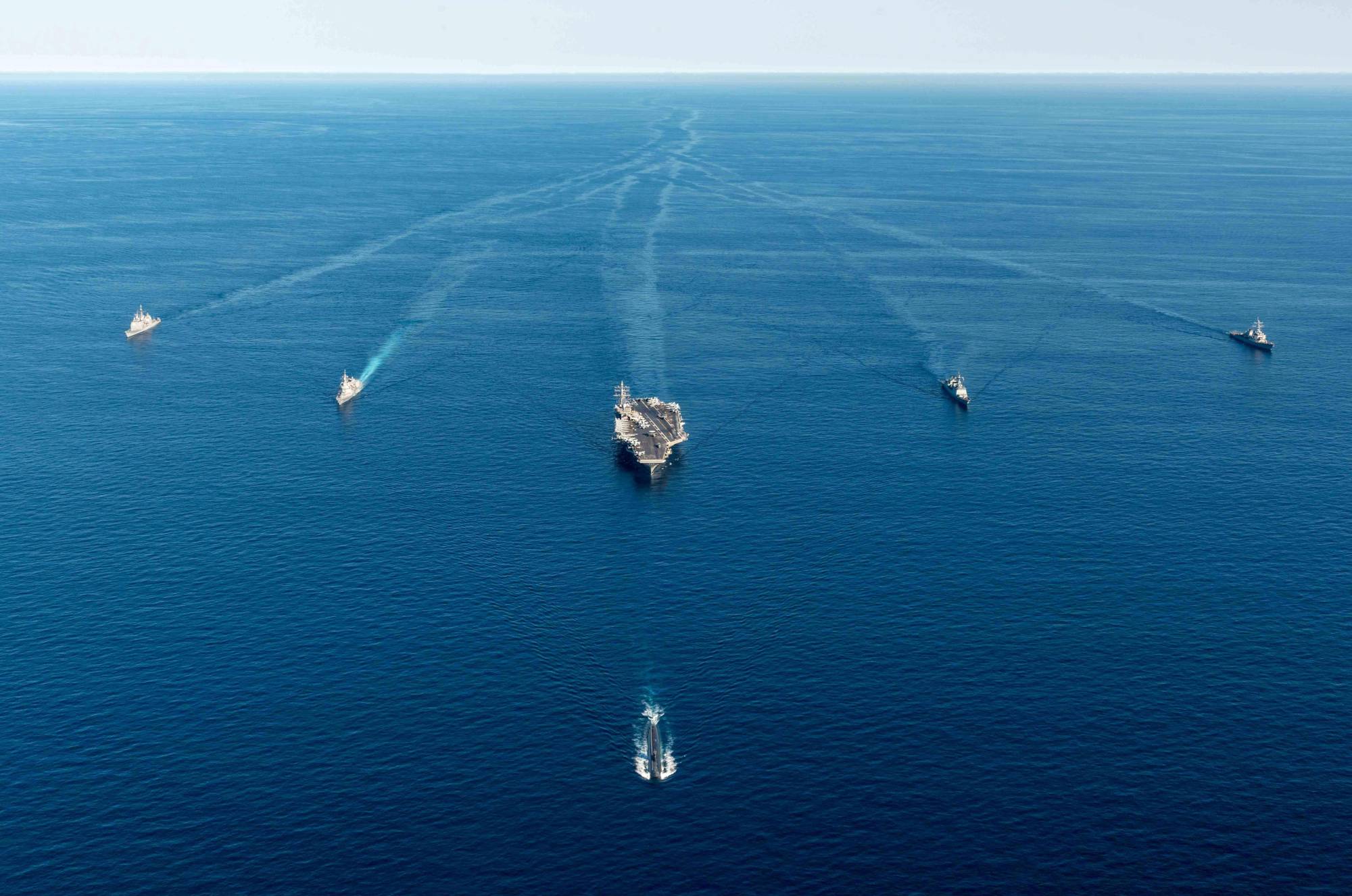
By Ling Yunzhi
According to media reports of the Republic of Korea (ROK), the US, ROK and Japan recently staged joint anti-submarine exercises against the Democratic People’s Republic of Korea (DPRK) in waters roughly 150 kilometers from the easternmost Dokdo (known as "Takeshima" in Japan) in the East Sea. The trilateral anti-submarine exercises are designed to improve their capability to respond to increasing threats from DPRK’s submarine-launched ballistic missiles (SLBM). However, in essence, the US is vigorously promoting the establishment of a military alliance of the US, Japan and the ROK, realizing the comprehensive advantages of the US in the Asia Pacific region, especially in Northeast Asia, and making it a deterrent position at the forefront against the so-called "expanding influence of China and Russia".
The US vigorously promoting the formation of the "trilateral alliance"
As we all know, the US has been building and expanding its alliance system in the Asia Pacific region as a way to maintain its hegemony over the region. Due to the multiple US military bases and garrisons stationed, and relatively close geographical locations to each other, the ROK and Japan can facilitate the US to implement its strategic containment to the maximum, and so have served as the core members of the US’ Asia Pacific alliance system.
However, Japan and the ROK have always been at odds given both historical and realistic factors. For this, the US has been promoting the reconciliation between the ROK and Japan in recent years, intending to develop a "trilateral alliance" on the basis of existing bilateral alliances, and play an important role as a link.
The trilateral anti-submarine exercises also indicate ever-deepening defense cooperation between the three countries. As we all know, in anti-submarine or air defense operations, the sonar signals from submarines are the most sensitive information, and the sonar performance of helicopters and surface warships in anti-submarine operations, as well as their ability to search for and attack submarines, are also the core secrets of all militaries. In the exercises, the three participating parties have sent aircraft carrier strike group or destroyers to detect and chase the submarine of an imagery enemy, completing the simulated confrontation in the subjects of anti-submarine operations, search and attack of submarines, etc. They also exchanged relevant information and confirmed interoperability. All these indicate that under the leadership of the US, the defense cooperation between the US, ROK and Japan is moving to a new high.
Prospect of the "trilateral alliance" is complicated and volatile
As the security situation over the Asia Pacific region becomes increasingly complicated, the US is sure to further strengthen its cooperation with its allies including Japan and ROK in various fields, and constantly pull the US-Japan-ROK "trilateral" relationship closer. The overall strike force is thereby to be expanded as a whole, resulting in more effective deterrent at a higher level. While, on the other hand, the complexity, volatility and vulnerability of the trilateral alliance system are further highlighted with manifested cooperation displayed.
For the joint anti-submarine exercises, the ROK and Japan have had their own plans, with great differences in demand. As for the ROK, it intends to strengthen its own anti-submarine capability via the cooperation with Japan in anti-submarine warfare, because the Japanese Self Defense Force (JSDF) mastered strong anti-submarine combat capability against the Soviet Union during the Cold War, and such cooperation with Japan in this field will help deal with the latest "threat" posed by the DPRK’s submarines and series of missile tests. Therefore, the exercises will function to deter the DPRK.
However, due to historical grievances and other reasons, the anti-Japanese sentiment in the ROK is still high. Even before the exercises, there had been opposition voices in the ROK. In particular, the exercise location is close to the sensitive area under dispute between the two countries, and this has been more offensive to the ROK people, who believed that the ROK has acquiesced in the JSDF's involvement in the situation on Korean Peninsula. In all, the ROK people are unwilling to allow its government to deepen military cooperation with Japan.
As for Japan, more complex factors are involved in developing relations with the ROK, including its domestic political motivation for expanding and strengthening its military. In essence, it is to break through the restrictions of the Peace Constitution and improve its strategic position over the Asia Pacific region. Therefore, Japan has kept sticking to its position stubbornly in the face of historical issues of great concern to the ROK and has been rather perfunctory in improving bilateral relations. For example, the ROK has played up the positive influence of the meeting between ROK President Yoon Suk-yeol and Japanese Prime Minister Fumio Kishida, while the Japanese side responded insipidly, even unwilling to admit that it was a formal meeting. This has to a certain extent shown that Japan is not keen on improving the bilateral relations.
Therefore, despite the recent elevated high-level communications between the ROK and Japan, the deepening of bilateral cooperation in the future still faces great resistance, and it is unlikely for the bilateral relations to make substantive breakthroughs in the short term. What is even more worrying is that the US government has not taken into full account the dynamic changes and complexity of the regional security situation when promoting the deepening of defense cooperation with the ROK and Japan. With the increasing trilateral military cooperation between the ROK, the US and Japan, the DPRK side is bound to make more intense responses, which in turn tends to lead to the escalation of tension on the Korean Peninsula.
Editor's note: Originally published on thepaper.cn, this article is translated from Chinese into English and edited by the China Military Online. The information and opinions in this article do not necessarily reflect the views of eng.chinamil.com.cn.
